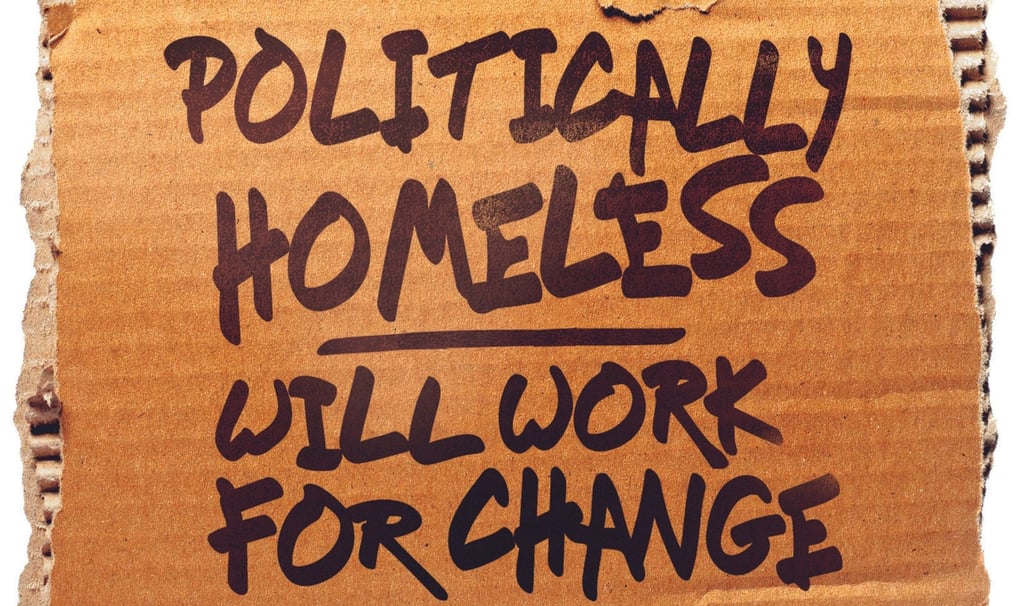A Crisis of Political Inaction, Not Scarcity: Homelessness in Canada
This essay examines the persistence of homelessness in Canada, highlighting political inaction and misplaced priorities as key factors. It calls for compassion and a shift towards long-term solutions.
HOUSING INITIATIVES
Nishant Mathew
5/12/20254 min read


Suffering places a heavy burden on the indifferent. The more the former grows, the farther the latter must turn its head.
We must ask ourselves – could we sleep on park benches? Could we afford to lose a finger to the cold? Feast on noxious dustbins behind convenience stores?
It was a Thursday afternoon—or maybe Monday, or perhaps Saturday; I don’t quite remember. All the days shared the same snow and piercing cold anyway. An old woman sat hunched against a water pump. She fumbled for every scrap of cloth that could attend to her shivering chest. She struggled between shielding her chest and securing her cardboard, which insisted on following the unforgiving wind. I was on my way home, but by the words on her cardboard, I could tell she was already there.
This image was only a thought in my head—a fleeting thought, as it would be for most of us. But I wonder if quantifying someone’s helplessness would sway our apathy. I wonder if knowing she could be one of at least 35,000 Canadians who would spend that night without a home would change anything.
According to Statistics Canada [1], 11.2% of Canadians—about 1.7 million people—have experienced some form of homelessness in their lifetime. Of these, 2.2% experienced absolute homelessness, such as living in shelters or public spaces, while 10.5% faced hidden homelessness, lacking a stable residence and relying on temporary arrangements.
Canada, renowned for its economic prosperity and social welfare systems, paradoxically continues to grapple with homelessness. Despite various governmental initiatives, it remains a pressing issue.
The reasons are many and deeply interwoven.
I’d like to outline a few—not only to help the reader understand, but to better grasp, myself, the folly we so callously allow to prevail.
Lack of Affordable Housing:
The shortage of affordable housing is one of the most significant drivers of homelessness. In 2021, 20.9% of Canadian households spent 30% or more of their income on housing, meeting the threshold for housing unaffordability. [2]
Low Income and Poverty:
A persistent gap between wages and the cost of living forces many Canadians into housing instability. Financial hardship was cited by 41.8% of individuals as the primary reason they became homeless. [1]
Mental Health Challenges:
Mental illness can disrupt a person’s ability to maintain employment or housing. 38% of formerly homeless individuals report having poor or fair mental health, compared to 17.3% of the general population. [1]
Substance Abuse and Addiction:
Addiction issues contribute both to becoming and remaining homeless. Over 25% of survey respondents said substance use was linked to their housing loss. [3]
While the federal government allocates approximately $561 million annually to homelessness programs through Infrastructure Canada, the Parliamentary Budget Officer estimates that an additional $3.5 billion per year would be required to achieve a 50% reduction in chronic homelessness [4].
Critics argue that Canada's approach has prioritized short-term emergency responses, such as shelters, over long-term solutions like building affordable housing. A 2017 report by the Canadian Observatory on Homelessness estimated the governments spend $7 Billion per year on homelessness (shelters, healthcare, policing), while investing significantly less in permanent housing solutions
The government pledged $82 billion over 10 years in the National Housing Strategy (NHS). However, multiple audits (including by the Auditor General and advocates) [2] show that the NHS lacks transparency, fails to track outcomes, and has not met its affordable housing creation targets. The NHS, while ambitious on paper, has repeatedly failed to meet its targets, and many of the units it funds remain unaffordable for those most at risk.
How can such problems persist so ubiquitously in a nation that claims economic progress and prides itself on a robust welfare system?
I refuse to believe that this is a mere lack of resources or government funding. With a GDP of over $2 trillion and some of the highest per-capita wealth globally, Canada clearly has the fiscal capacity to mitigate these issues. [6]
Governments choose to fund short-term management (like shelters and emergency care) instead of investing in long-term, deeply affordable housing, income supports, and prevention.
Indifference – that is the problem. Homelessness persists in Canada not because of a lack of wealth or resources, but because of deeply rooted systemic failures and political inaction. Despite being one of the world's wealthiest nations, Canada continues to treat homelessness as a temporary crisis to be managed rather than a structural issue to be solved.
It has the means, but not the political will, to treat housing as a basic human right. It is a question of political priorities, not scarcity.
Are they not human beings? Do we not have, as citizens—nay, as humans—the responsibility, or better yet, the empathy, to help one another?
I am a realist so I am incapable of ending this on a false promise or a dishonest note. So, I cannot claim that change within our government is imminent, or that a renewed resolve to end homelessness is just around the corner.
However, I have managed to find a very small silver lining: Hope.
I take comfort in hope. I hope we overcome this calamity. I hope we realise our humanity, and cultivate in ourselves and in this world a sense of compassion. I hope my frustration’s extent does not merely end with these words. Rather, I hope I go beyond and extend kindness to those who are just like me, but whom circumstance has stripped of the privileges I so easily take for granted.
